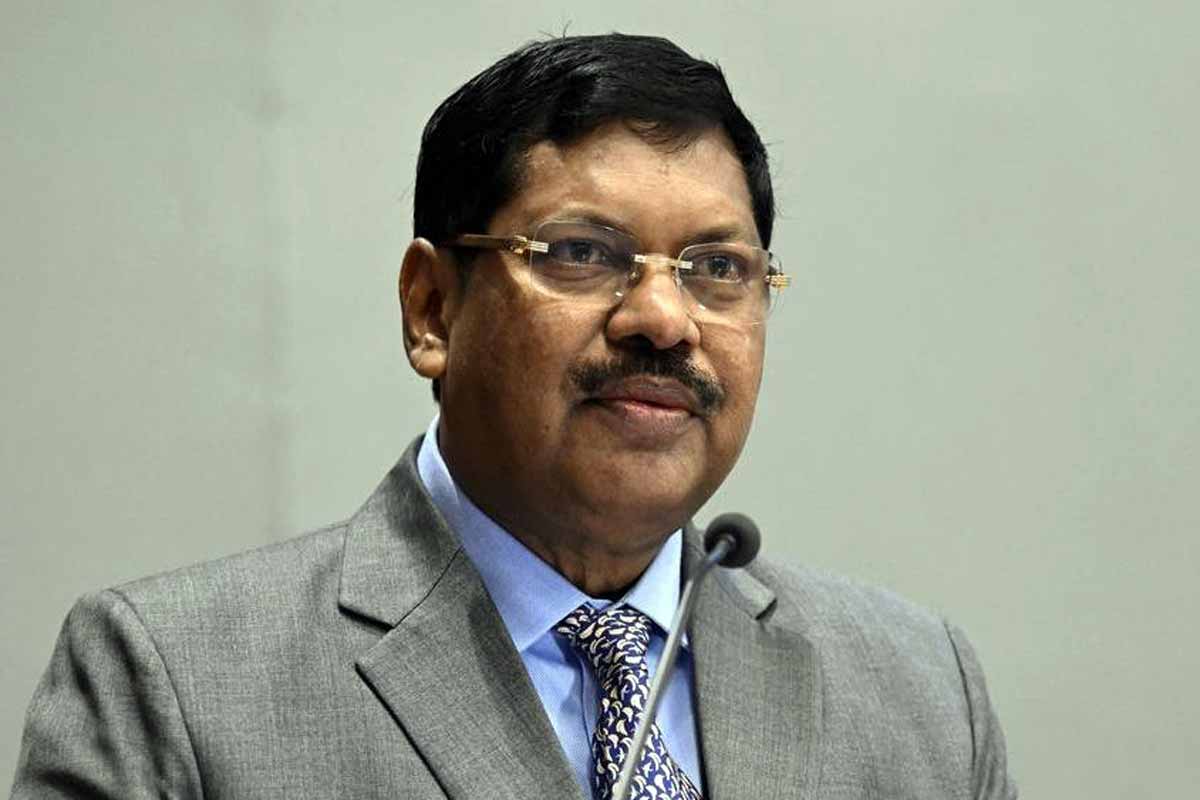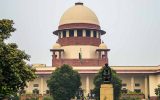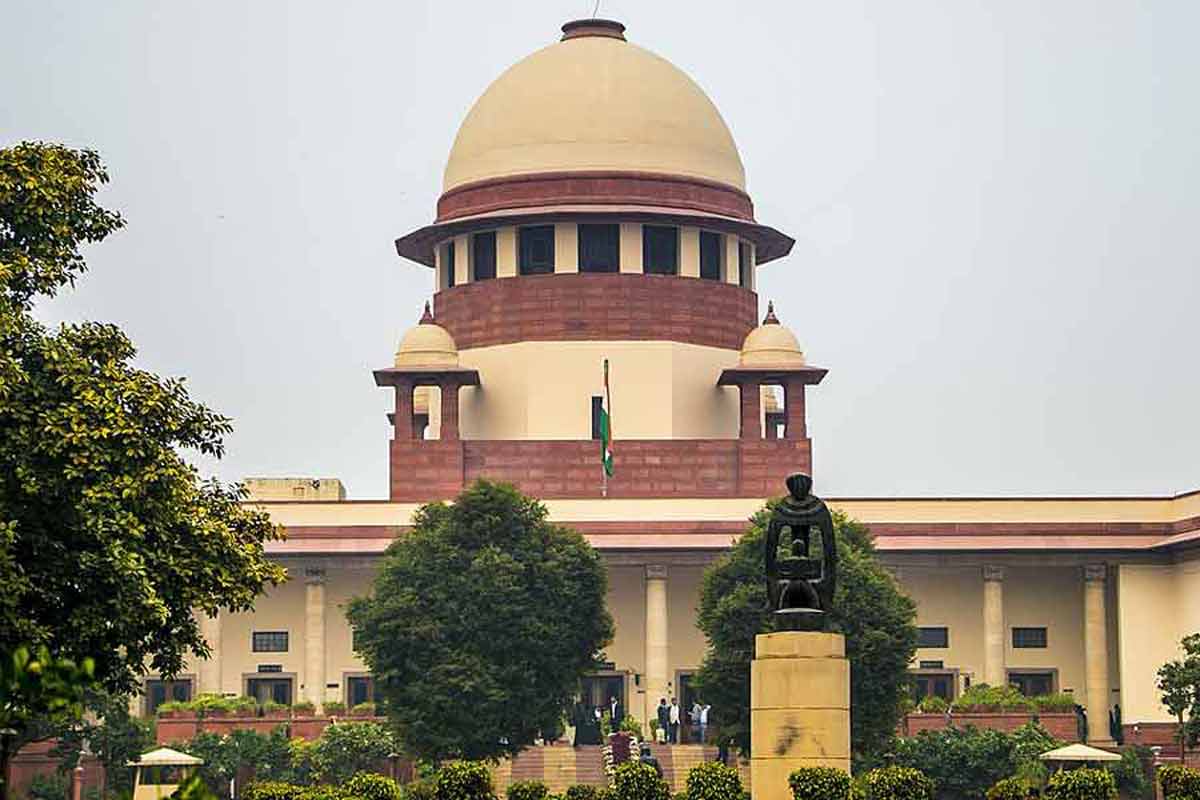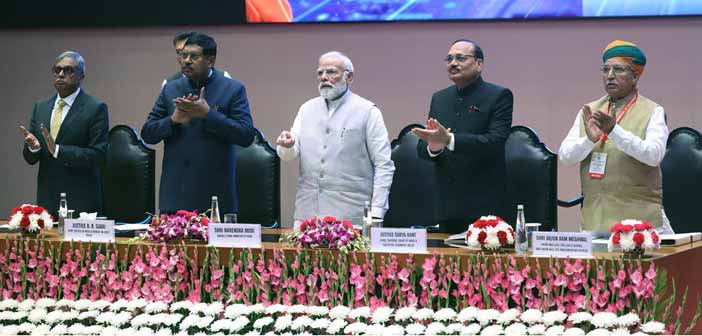Don’t Burden Yourself with Loans for Foreign LL.M.: CJI BR Gavai to Law Graduates: Hyderabad, India – Chief Justice of India (CJI) B.R. Gavai delivered a thought-provoking address at the 22nd Convocation of NALSAR University of Law on Friday, offering a candid critique of the Indian legal profession and dispensing crucial advice to graduating law students. His speech touched upon critical issues ranging from the emotional toll of legal practice to the societal pressure on young lawyers to pursue expensive foreign degrees.
CJI Gavai expressed significant concerns over the structural inequalities prevalent in the legal field, the pervasive emotional burnout experienced by legal professionals, and the increasing trend among law graduates to seek validation through costly overseas education. He acknowledged the immense mental stress inherent in the profession, describing law as “emotionally demanding and, at times, isolating.” He cautioned the graduates about the long hours, high expectations, and sometimes ruthless culture, noting, “You will feel pressure not just to succeed, but to appear successful.”
In a powerful call for self-preservation, Justice Gavai urged young lawyers not to conceal their struggles, quoting Audre Lorde: “Caring for myself is not self-indulgence, it is self-preservation, and that is an act of political warfare.” This emphasis on mental well-being resonated deeply with the audience, highlighting a growing awareness of the psychological challenges within the legal fraternity.
READ: Kanwar Yatra: Plea in Supreme Court Challenges UP Government’s QR Code Mandate for Eateries
Drawing parallels with a 2023 study titled “The Making of Lawyers’ Careers: Inequality and Opportunity in the American Legal Profession,” Justice Gavai pointed out that a lawyer’s career trajectory is heavily influenced by the law school attended and the initial practice environment. He observed a similar trend in India, where “A student from a National Law School in a metro city may be seen as ‘better placed’ than one from a smaller university, not necessarily because of skill, but because of perception.” He called for introspection within the legal community, stating, “Structural inequality hides in silence. In the subtle comments. In the internship that never comes. In the doors that are hard to open.”
A significant portion of his address was dedicated to the widespread pressure on young Indian lawyers to pursue a Master’s degree abroad. CJI Gavai described this pursuit as often being a symbol of external validation rather than a carefully considered academic endeavor. He issued a strong caution: “Do not put yourself or your family under the burden of loans amounting to 50–70 lakhs just for a foreign degree. A foreign degree alone is not a stamp of your worth…Don’t take this decision in a reflex of thought or under peer pressure.”
READ: TVS Infrastructure Trust Raises ₹1,300 Crore in Landmark IPO
As an alternative, Justice Gavai suggested that a “small portion of it can be used as an investment to start your independent practice or build a chamber.” He advised deferring foreign studies until a stable career foundation is built, emphasizing, “There is no age bar to learn. Go abroad not to escape, but to expand.” He linked this trend of seeking foreign degrees to a deeper issue: a perceived decline in confidence in India’s own postgraduate legal research infrastructure. “We must ask: Why do so many feel they have to cross oceans to find intellectual stimulation, academic mentorship, or a meaningful platform for their research?” he questioned. While acknowledging the value of global exposure, he lamented the absence of clear academic pathways and merit-based hiring upon their return, noting, “When they return, they often find our institutions unwelcoming, under-resourced, or closed to new ideas.”
Justice Gavai also underscored the paramount importance of legal fundamentals as the bedrock of a sound professional life. “There is no shortcut to knowing the law. There is no alternative to knowing the basics well. The Constitution, the Contract Act, the Code of Civil Procedure, the criminal law, and other core subjects are not optional subjects. They are your daily bread,” he asserted, stressing the need for a strong foundational knowledge.
READ: NEET-UG 2025 Re-Test for Candidates Affected by Power Outage in Madhya Pradesh: High Court
Reflecting on the critical role of mentorship, the CJI candidly shared his personal journey: “Let me say this with honesty: I am here today not just because I worked hard. Yes, effort mattered. But so did the fact that someone opened a door for me. Someone saw something in me before I could see it in myself. That act of belief, of support, of sharing wisdom changed my life.” He urged all senior lawyers and judges present at the convocation to actively mentor young lawyers, recognizing the transformative impact such guidance can have.
CJI Gavai concluded his inspiring speech by encouraging the fresh graduates to listen to their inner selves and embrace uncertainty. “So, it’s okay to take a pause in life, sometimes. It’s okay to be uncertain. You don’t always have to prove yourself. Sometimes, just being is enough,” he advised, leaving the graduates with a message of self-acceptance and resilience as they embark on their legal careers.
READ: Pixxel Bags iDEX Grant to Develop Hyperspectral and Mid-Wave Infrared Payloads












